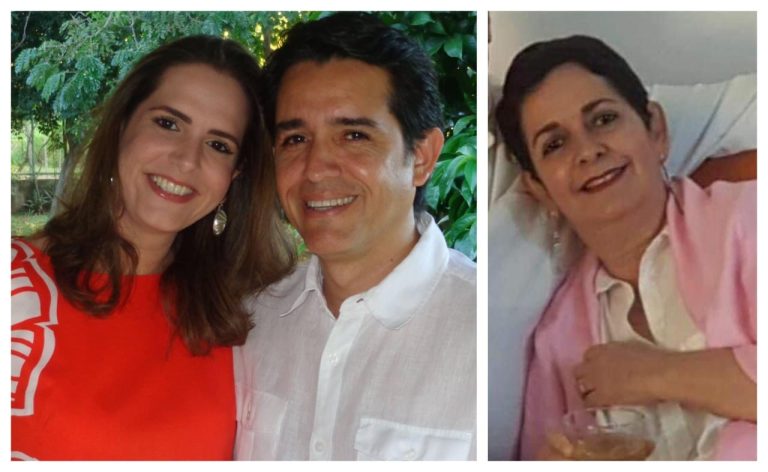23 de enero 2023

Children of Exile: The Births “Sowing Hope” in the Camp of Nicaraguan Farmers

PUBLICIDAD 1M
PUBLICIDAD 4D
PUBLICIDAD 5D
Human rights defender warns that detention of relatives of opponents is “a new pattern of repression”

De izquierda a derecha: Ana Carolina Álvarez Horvilleur, Félix Roiz Sotomayor y Jeannine Horvilleur Cuadra. Fotos: Cortesía
A court of the Ortega-Murillo regime sentenced on January 18, three relatives of opposition member Javier Alvarez Zamora, who were arbitrarily detained on September 13, 2022, after a police raid in which the authorities tried to capture Alvarez.
Alvarez’s wife, Jeannine Horvilleur, 63, and daughter, Ana Carolina Alvarez Horvilleur, 43, both of Nicaraguan and French nationality, were sentenced to eight years in prison for the alleged commission of the catch-all crimes of “conspiracy to undermine to national integrity” and “propagation of false news through information and communication technologies”.
Along the same lines, Felix Roiz Sotomayor, Alvarez’s son-in-law and husband of Ana Carolina, was sentenced to ten years in prison for the same crimes, for which the State of Nicaragua and Nicaraguan society appear as “victims or offended.”
The trial against the three relatives of Alvarez was carried out four months after they were imprisoned in the infamous El Chipote jail. The sentence will be confirmed on January 26th.
The arrest of relatives of political prisoners is “a new pattern” of repression that human rights defenders have been identifying since the later months of 2022, which is generating “fear” among those affected and forcing them to “silence” in the face of abuses by the Ortega regime.
“At this moment there is a fear among the relatives of the political prisoners of speaking out,” warned Juan Carlos Arce, of the Nicaraguan human rights collective Nunca+. “The voices of these victims have been essential to be able to pursue demands and influence international protection mechanisms. At this moment the Ortega regime, as never before, is persecuting not only their targets but also their relatives,” he noted.
Arce sees at this time in Nicaragua “a sustained repression against family members”, which makes the regime’s recipe of “prison or exile” effective for the voices that he considers to be opposition. “It is a way to send a message to Nicaraguan society, that the regime is relentless in its repression, in the persecution of anyone it considers an enemy,” he explained.
The human rights defender also warned that the persecution of relatives of political prisoners is mainly affecting those who have resorted to the Inter-American system. He pointed out that in his Collective alone they have processed more than fifty precautionary measures before the Inter-American Commission on Human Rights (IACHR) and “we are seeing that when the State finds out about the processing of precautionary measures, contrary to the attacks stopping, they are increasing the persecution.”
Another case that perfectly illustrates the persecution of political prisoners’ relatives is the arrest of Rodrigo Navarrete, uncle of political prisoner Jaime Navarrete, who was captured on November 25 in Managua. After four years of demanding the release of his nephew, he is now being accused of committing the alleged crime of “illegal possession of firearms and ammunition.”
“Rodrigo was the only relative of the political prisoner Jaime Navarrete who visited him in jail,” said the human rights defender. His arrest, by the regime, “is a punitive action that is directed at Rodrigo and his nephew (Jaime) who is a political prisoner,” he stressed.
Finally, Arce recalled that there have been arrests of people linked to the Sandinista Front as well, in which the families have not said anything either. “There is clearly an objective here to silence the voices of the victims, to paralyze them, so that they do not speak to anyone,” he concluded.
This article was originally published in Spanish in Confidencial and translated by Havana Times.
PUBLICIDAD 3M
Confidencial es un diario digital nicaragüense, de formato multimedia, fundado por Carlos F. Chamorro en junio de 1996. Inició como un semanario impreso y hoy es un medio de referencia regional con información, análisis, entrevistas, perfiles, reportajes e investigaciones sobre Nicaragua, informando desde el exilio por la persecución política de la dictadura de Daniel Ortega y Rosario Murillo.
PUBLICIDAD 3D